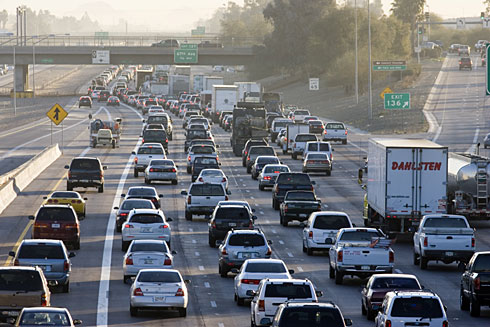Off Topic: Infographic - Just shut off your stinkin' car already
What a week.
SHRM Annual for the first half of the week, then a really gripping and emotionally wringing NBA Finals Game 7 last night. I am pretty much done I think.
But not so much that I can't spare 5 minutes to share the infographic below courtesy of iturnitoff.com about the costs, and really wastes, of excessive automobile idling.
I can remember back in the day being told something about how starting a car uses as much gas as a couple of minutes of idling the car - a calculation certainly invented to justify a few Dads of those times wanting to keep the heat or air conditioner on while sitting in the car listening to the end of the ballgame on the radio.
Check the below inforgraphic for the details of the costs of idling, then I have some comments after the jump:
From iturnitoff.comThe one element of the infographic that really stood out to me, and the only reason I decided to post it today, is the call-out of the Drive Thru lane as a leading cause of engine idling, and the corresponding pollution, cost, and wastes associated with the practice.
I hate the Drive Thru lane.
You have to talk into a clown's mouth, there is almost no chance the person on the headset is paying any attention to you, and chances are pretty good your order will be messed up - but you won't be able to do anything about it because by the time you realize the error you'll be 5 miles down the road.
I often stop at a local Bruegger's shop near where I live to get coffee and bagels in the morning. Invariably, there is a line of cars snaking around the shop, clogging up the Drive Thru lane.
I always park and actually enter the shop, where there is never more than one or two folks in line ahead of me, and since I know all the workers in the shop so well, (from actually going in the store and talking with them so frequently), my order is often already being assembled before I even have to ask for it.
I am in and out of there in a couple of minutes and meanwhile the line of SUVs and Minivans has maybe, collectively, inched forward a car length or two. Look, I get why people like the Drive Thru. We sometimes have kids in the car, the weather is nasty, or parking is not convenient. But most of the time it is just an excuse to stay in our little cocoons by ourselves a little longer.
And that is cool, that is a valid reason. I don't always feel like talking to the guys in Bruegger's either. But that decision, that choice to remain tuned out, well that comes with a price measured in wasted gas, wasted time, and wasted opportunity to get to know the folks that live and work in your neighborhood.
Ok, that's it. Rant off. Time for more coffee.
Have a great weekend!

 Steve
Steve



